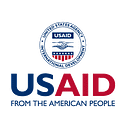Blending Finance and Local Talent: How USAID’s Engines of Growth Transformed SME Financing in the Western Balkans
When the U.S. Agency for International Development (USAID) launched its CATALYZE “Engines of Growth” (EoG) project in the Western Balkans in 2020, the goal was simple but bold: transform how micro, small, and medium-sized enterprises (SMEs) access capital in one of Europe’s economically volatile regions. The results, now at the project’s end, suggest USAID did more than inject funding — it fundamentally changed the financial landscape for thousands of local businesses.
EoG, part of USAID’s broader CATALYZE initiative, was designed to bring private capital to underserved SMEs, which make up over 90% of businesses in the Western Balkans. In four years, EoG mobilized $200 million in private capital, providing financing and/or technical support to nearly 3,500 SMEs, 39% of which were women-owned. The project’s data reveals not just a series of transactions, but a shift in how business is done across the region.
For decades, SMEs in the region primarily relied on commercial banks, often facing steep costs and limited options, keeping capital inaccessible. EoG disrupted this status quo by introducing “market-first” financing solutions — many of which had never been seen in the region before. These include embedded financing, supply chain factoring platforms, niche loan products tailored to women entrepreneurs, fintech platforms for loan referrals, bank statement analysis tools for enhanced credit assessment, and new equity financing opportunities. These market-first solutions fundamentally change the landscape, diversifying financing options, addressing the needs of businesses previously seen as “unbankable”, and spurring innovation.
Amanda Fernandez, Chief of Party for USAID’s CATALYZE project, reflected on her own journey with the region, dating back to introducing microfinance concepts in Sarajevo over two decades ago. “The need for capital deployment to boost business growth is timeless, but the approach has to evolve with the times and regional goals, which now is EU ascension,” she said at EoG’s closeout event. “The CATALYZE EoG team kick-started a transformation of the financial markets in the Western Balkans for SMEs, and in particular for SMEs owned by women.”
A New Financial Landscape
EoG’s success stems from its “pay-for-results” model, which incentivized financial institutions and local business advisory service providers (BASPs) to guide SMEs through complex financing processes and rewarding them only when deals were successfully closed. By building a network of 44 local BASPs and engaging 75 financial institutions, EoG rapidly deployed financing at an unprecedented scale. This approach shifted the focus from dependency of foreign aid to empowering local actors.
Local BASPs worked alongside SMEs to help them understand and obtain financing, while only receiving payment if they succeeded in securing funds for their clients. This created a more transparent and motivated environment, shifting the focus from dependency on foreign aid to local capacity building.
The project’s partnerships with financial institutions helped introduce innovative financial products such as crowdinvesting, revenue-based financing, and digital lending platforms embedded directly within business and e-commerce software. As a result, many of the project’s BASPs, once dependent on donor funding, are now operating independently. In a feedback survey of the SMEs supported, 97% reported that they would continue to work with these advisors.
A Boost for Women-Owned Businesses
Targeted initiatives to close financing gaps for women-owned businesses have also paid dividends. Women-led SMEs historically face even greater hurdles to obtaining financing in the region. EoG mobilized $14 million through a specialized product targeting women SMEs that included both financial and non-financial products, such as specialized loans and mentorship programs. One solution, e-factoring — a financial service that advances funds to businesses against future payments — saw a surge in participation from women-led firms, growing from 20% to nearly 50% over the project’s lifespan. Such efforts are reshaping the opportunities available for female entrepreneurs, who are increasingly seen as viable candidates for investment.
“For too long, women-owned businesses were invisible to lenders. Through EoG, we showed that women entrepreneurs are excellent financial bets and clients who not only deserve a seat at the table but bring innovation and resilience that benefit entire communities,” said Fernandez.
Resilience Amid Adversity
The timing of EoG was critical. Launched at the onset of the COVID-19 pandemic, the project faced challenges that few could have anticipated. Working without a traditional office and adapting to a remote environment, EoG’s all-women leadership team pivoted to virtual support and maintained momentum. Remarkably, nearly three-quarters of the SMEs participating in EoG reported an increase in sales, and 86% secured financing that would have otherwise remained out of reach.
Fernandez credited the project’s success to the adaptability and dedication of local advisors and financial partners who persevered under difficult circumstances. “We faced logistical hurdles and economic uncertainty, but these challenges only underscored the need for the work we were doing,” she said.
A Lasting Legacy
Now, as EoG concludes, its impact is set to outlast the project itself. The new networks, financial tools, and models introduced by EoG are already being woven into the fabric of the Balkans’ financial system, making credit more accessible for generations to come. Financial institutions are better equipped to serve SMEs and are increasingly committed to supporting women entrepreneurs, as the pay-for-results model proves its staying power. For many, EoG’s success represents a shift in how international development is done. Rather than relying on foreign experts to drive local change, USAID’s approach empowered local actors to take charge, forging a sustainable model that builds on the strengths of the community.
“Today, the story of the Western Balkans is about resilience, innovation, and an ecosystem that can thrive without constant international intervention,” said Fernandez. “This is what true sustainable development looks like.”
